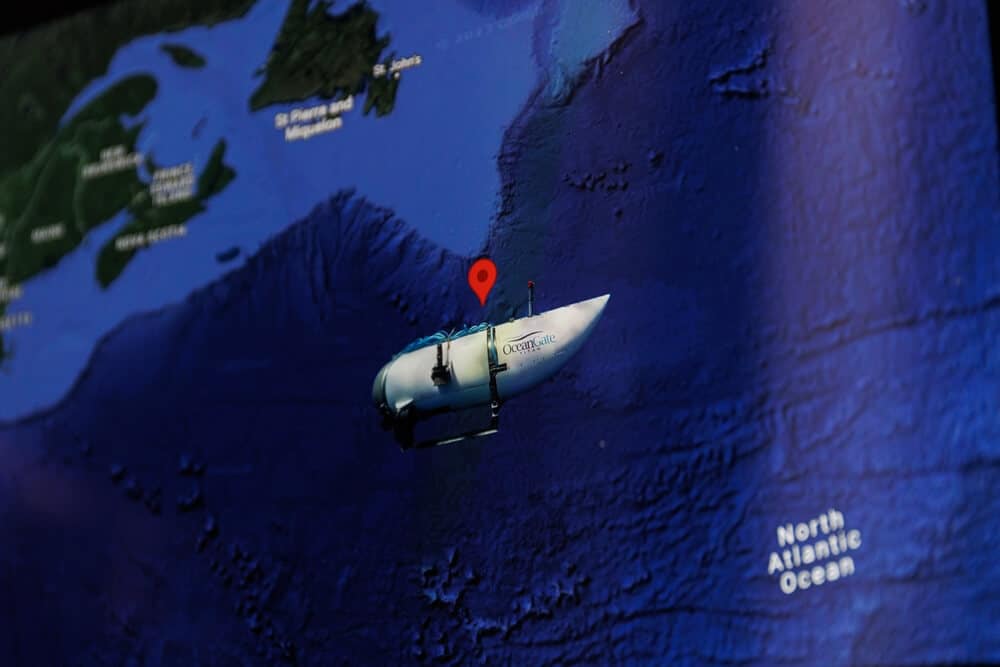Can Families Sue Oceangate? Ted Sapulding Attorney Answers

In the wake of the recent incident involving Oceangate, there is growing speculation about whether the affected families have grounds to sue the company. To shed light on this matter, we decided to analyze it and provide valuable insights into the potential legal ramifications facing Oceangate based on our experience in Personal Injury.
Civil Lawsuits: Wrongful Death Cases
There’s likelihood of families pursuing civil cases against Oceangate, specifically in the form of wrongful death lawsuits. Such cases fall under the category of personal injury claims. Given the circumstances of the incident, it would not be surprising if one or more families decide to pursue legal action in this regard.
It appears to be taking shape that any wrongful death lawsuits filed against Oceangate will center around both potential negligent design of the submersible as well as failures in the maintenance of the submersible after alleged fatigue and leaks became known to the crew.
There also is always the potential for other third parties to have been involved in the design or maintenance of the submersible or even the operation itself. If this in fact becomes the case, civil lawsuits could be filed against these entities as well.

Does a criminal case develop against Oceangate?
Furthermore, there is the question of whether a criminal case may develop against Oceangate. Certain narratives circulating suggest the potential for a criminal investigation. If individuals within the Oceangate operation were aware that the mission posed a greater risk than usual, and still proceeded, it could warrant a criminal inquiry. Especially if rules and regulations the company may have been subject to were knowingly ignored by the Company.
The crux of the matter, both in civil and criminal proceedings, hinges on the level of knowledge Oceangate possessed in advance. The risks associated with the design of the submersible and the extent to which the CEO and other personnel were aware of these risks will be crucial factors in determining liability.
Waivers signed by passengers may serve as a form of protection for Oceangate.
The allure of participating in extraordinary ventures like Oceangate’s expedition stems from the inherent risks involved. CBS Sunday Morning correspondent and tech journalist David Pogue, who rode on the Titan submersible, shared a portion of the waiver he signed during his participation. The waiver explicitly stated the potential for physical injury, disability, emotional trauma, or even death. If the language of the waivers signed by the recent passengers mirrors this, it may serve as a form of protection for Oceangate.
Waivers are not uncommon in personal injury cases, but the unique circumstances surrounding this incident make it a more complex legal matter. If a lawsuit is filed, the enforceability of the waivers will likely be hotly debated. Additionally, the jurisdiction in which the case is brought will play a significant role in determining the outcome. With Washington State, the Bahamas (due to the LLC’s financial holdings), Canada and other maritime jurisdictions being potentially relevant jurisdictions, the legal landscape becomes multifaceted.
When it comes to enforceability of waivers, there are often multiple angles of attack to try to invalid a waiver. It often comes down to potential for gross negligence and the particular language of the wavier itself. However, in this particular case, there is one additional factor that the attorneys at Spaulding Injury Law find quite interesting that may play a role in whether the waiver language is enforceable against civil suits by the families.
Potential for Fraud To Invalidate Waiver
There is a narrative out there that allegedly Oceangate was able to avoid regulatory control over its submersible by categorizing its operations as an exploratory mission where the paying passengers were considered crew members not passengers paying for a trip. This is very interesting to our attorneys because when you read the Wavier that is going around from Oceangate there is language throughout it that does indeed make it sound like the individuals signing the Waiver are crew members not paying passengers on a sightseeing trip.
For example, at the beginning of the Wavier, the language says the individual is signing up as a “volunteer”. Throughout the Waiver it labels the trip as an “operation”. Odd language to use and begs the question whether the passengers paying around $250,000 for the sightseeing trip understood they were potentially be categorized as crew members so the Company could allegedly avoid being regulated like so many other industries in the sightseeing business are like Blue Origin.
The reason this may be an important angle for the families is traditionally fraud invalidates contracts. This means there is the potential that if these actions by Oceangate are found to have been fraudulent against the paying passengers, the Waiver could be found to be unenforceable.
Gross Negligence in the OceanGate Case
When it comes to waivers, the concept of gross negligence comes into play. If it can be proven that Oceangate acted with gross negligence in relation to the design or operation of the submersible, the waivers may be deemed void. At present, the focus seems to be on the design aspect, though information regarding the operation on the day of the incident remains scarce.
In conclusion, it appears likely that families affected by the Oceangate incident may indeed choose to pursue legal action against the company. However, the outcome will depend on a range of factors, including the level of knowledge Oceangate possessed, the enforceability of the waivers, and the jurisdiction in which the case is tried. As this complex legal situation unfolds, the families seeking justice will have to navigate these challenges to hold Oceangate accountable for their loss.

When you become our client at Spaulding Injury Law, you’ll be represented by a thoroughly experienced Atlanta personal injury attorney like Theodore A. Spaulding. For over 15 years, Mr. Spaulding has helped victims of negligence across the state of Georgia resolve personal injury cases, and he’s received a remarkable number of awards and honors from the legal community recognizing his commitment to clients and to the metro-Atlanta area.
Mr. Spaulding has been named one of the Top 100 trial lawyers in Georgia by the National Trial Lawyers for six successive years.
He is honored as a lifetime member of the Million Dollar Advocates Forum ® by the Top Trial Lawyers in America ®.
Charter Member of the Distinguished Justice Advocates.
Member of the Atlanta Bar Association.




















